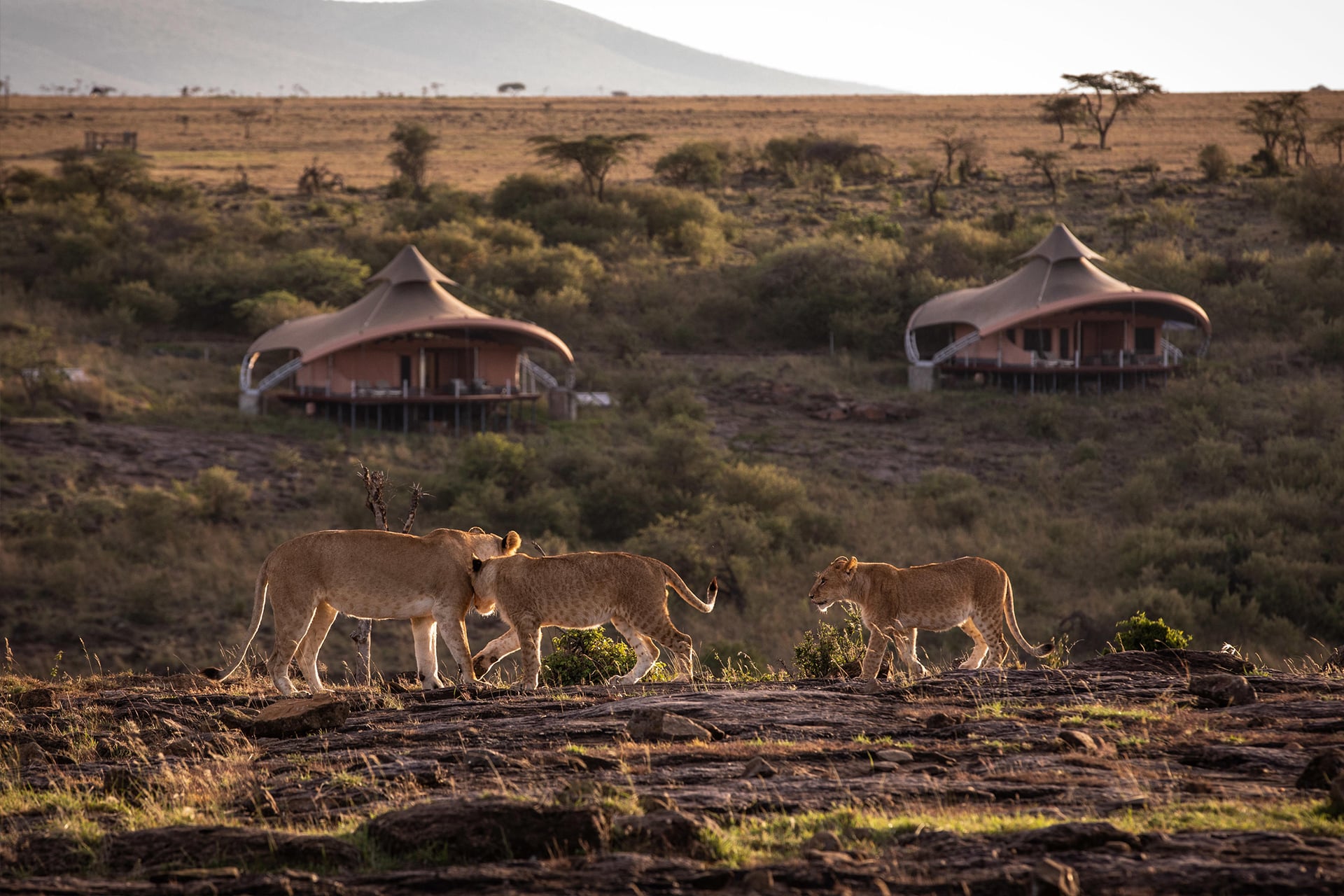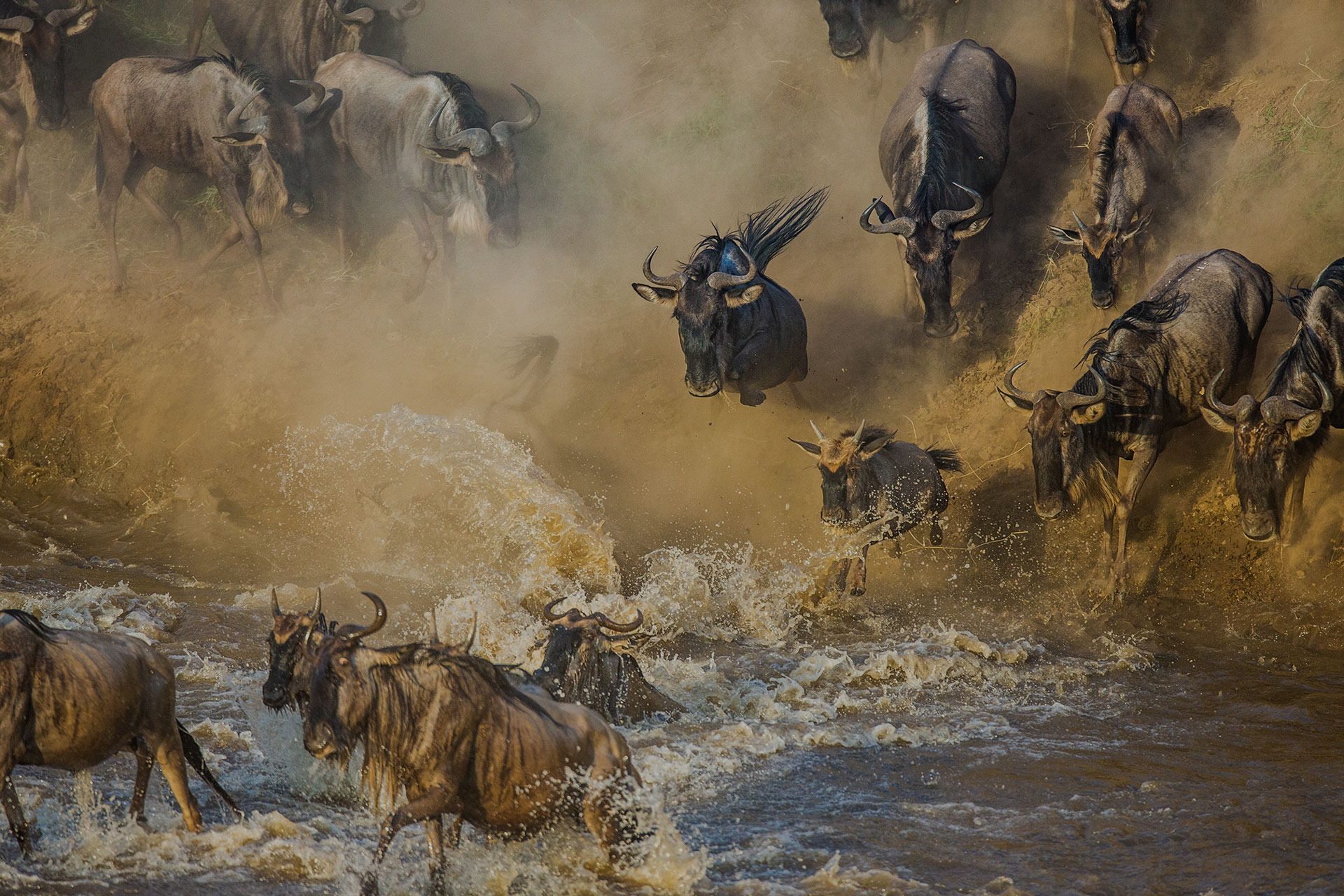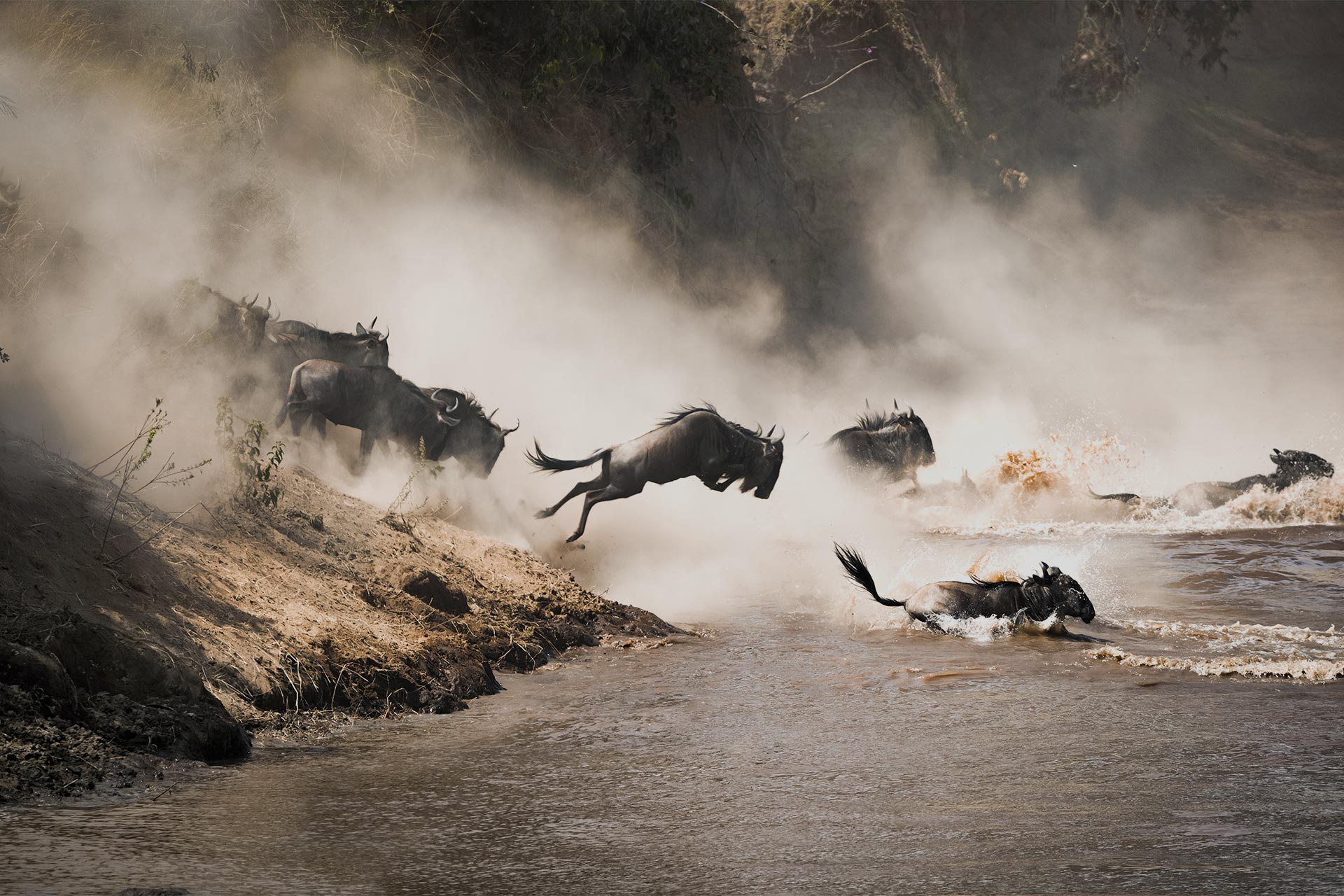Great Wildebeest Migration
Guide to the Great Wildebeest Migration in September
Ker & Downey® Africa > Luxury Travel Experiences > Great Wildebeest Migration Safaris > Great Wildebeest Migration in September
The rolling plains of the Masai Mara
Though some of the herd may still be seen wandering the plains of the northern Serengeti, the majority of the animals have now crossed over into Kenya’s Maasai Mara, grazing on lush green grass after an exhausting expedition across the Mara River. Throughout the month, river crossings continue with the herds starting to scatter north towards private conservancies (Mara North, Olare Orok) grazing on the rolling plains.
The great wildebeest migration in September is a great time to visit the Maasai Mara as the migratory herds are still heaving on the ground, and predators like cheetah, lion and hyena are abundant. The summer travelers have also started to thin out by September, making the reserve less crowded.
Experiences
Birdwatching Safari
The vast, fertile plains of Kenya’s Masai Mara offer fantastic birding all year round, with over 450 bird species among the plethora of terrestrial wildlife that roam the grasslands – 45 of which are birds of prey. This birdlife thrives in the different ecosystems of the reserve which include open savannah, rocky outcrops, river banks and the Great Rift Valley escarpments. Commonly known for birds include the rosy-throated longclaw and magpie shrike, the Masai Mara is also home to the secretary bird, kori bustard, southern ground hornbill, schalow’s turaco, grey-crested helmetshrike, and many, many more.
Where to stay
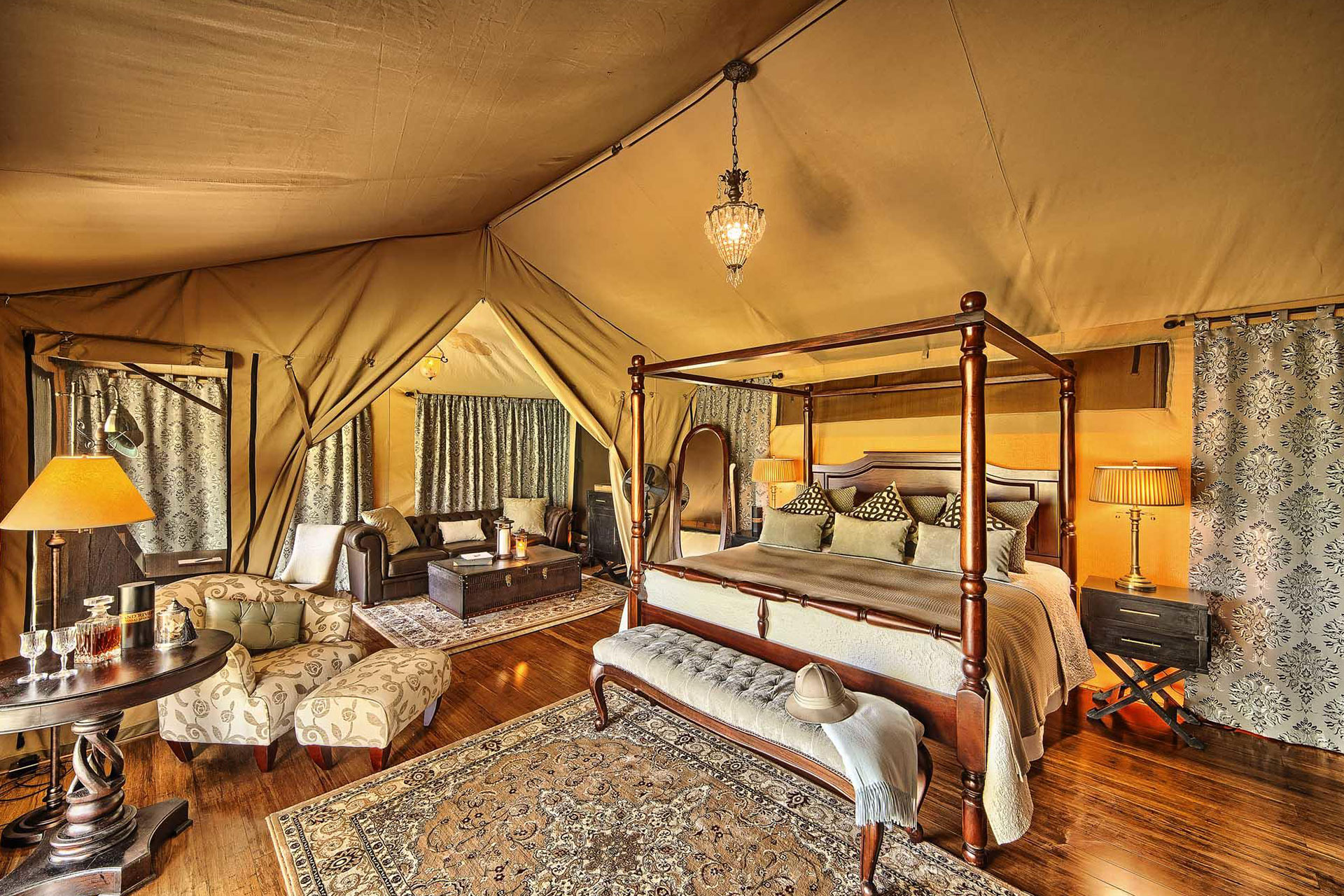
Sand River Mara
Set against the beautiful backdrop of the Masai Mara National Reserve, under a grove of shady trees, Sand River Masai Mara offers guests luxurious seclusion and a great place to witness the great wildebeest migration between the months of July and October. This sustainable and elegant camp comprises 16 canvas tented suites designed to resemble the old-world charm of the 1920s safari aesthetic, with a strong focus on low-impact and sustainable living, ensuring the conservation of the wildlife in the area.
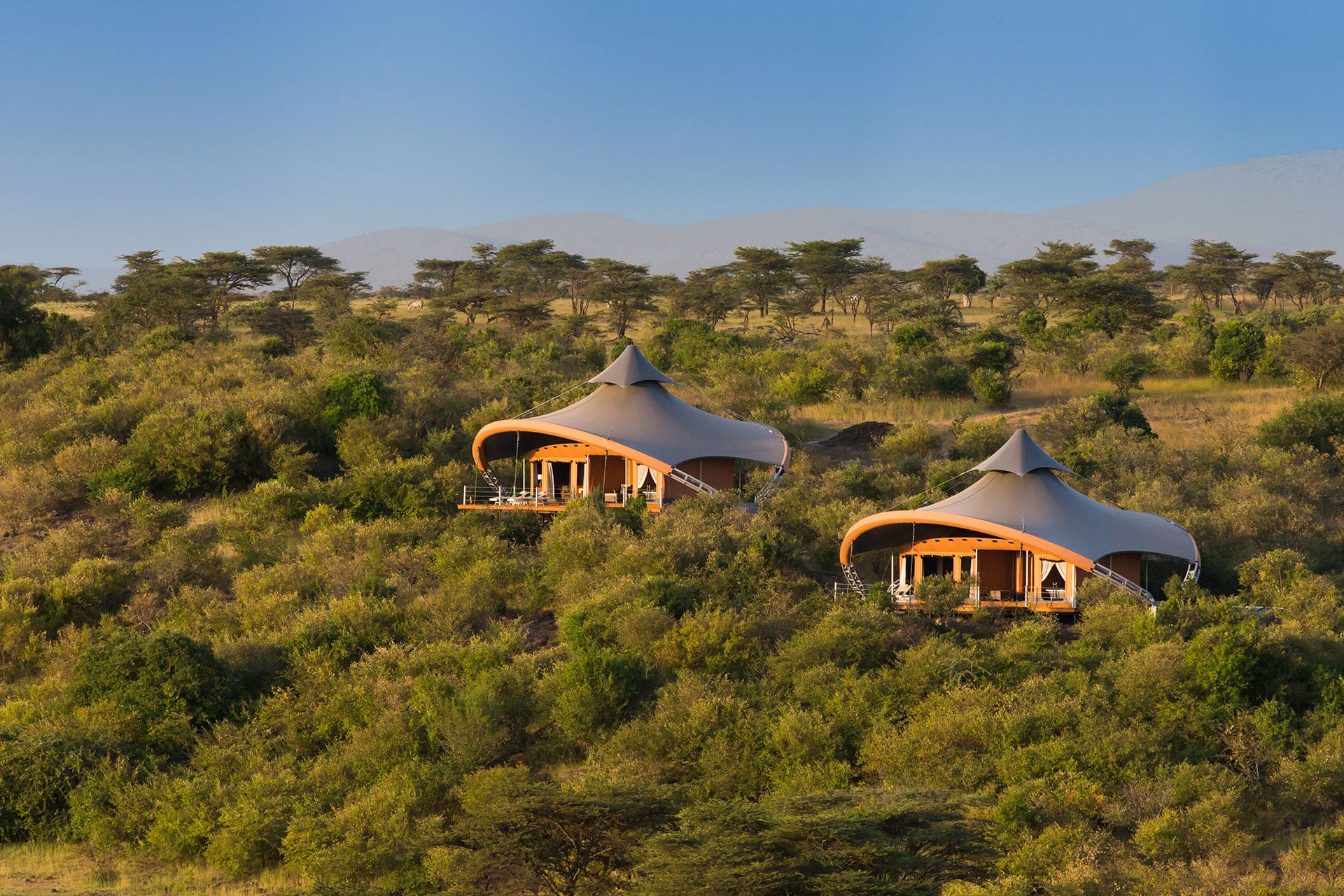
Mahali Mzuri
Situated within the private Olare Motorogi Conservancy, covering an area of 13,500 hectares, Mahali Mzuri is a luxury safari camp set right in the path of the Great Wildebeest Migration. The area is also home to around 150,000 Loita wildebeest that don’t make the migration south and instead, seem to loiter all year round. It is also home to a large number of lion territories and other abundant wildlife making it an unforgettable experience all year round. All this action combined with style and luxury that is out of this world, puts Mahali Mzuri in a league of its own.
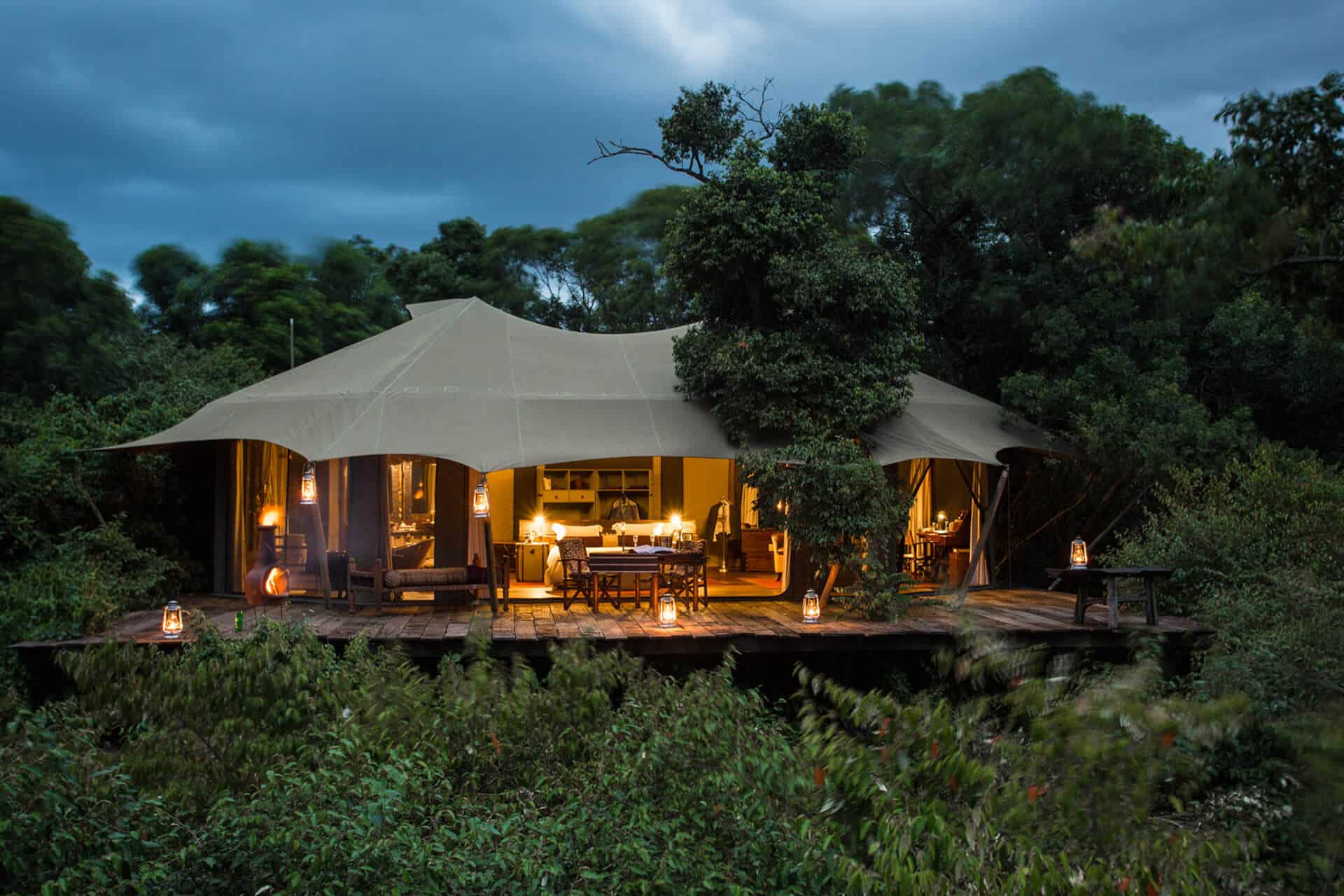
Mara Plains Camp
One of only five camps located within the 35,000 acre Olare Motorogi Conservancy, Mara Plains Camp borders Kenya’s Masai Mara Reserve with unrivalled access to the private conservancies that surround it. Between July and October, the camp is perfectly positioned to put guests in the middle of the great wildebeest migration action. The camp also sees a second migration each year between late November and June where more than 200,000 wildebeest move east to west from the Loita plains to the Mara traversing the Olare Motorogi and Mara North Conservancies, home to Mara Expedition, and Mara Plains Camp.
Great Wildebeest Migration Trips
Great Wildebeest Migration Safari Inspiration
Contact us, we are here every step of the way
See something you like? The luxury safaris showcased on our website are just a taste of what your unique African experience could look like. Tell us what you liked and we will craft a one-of-a-kind luxury safari, just for you!


